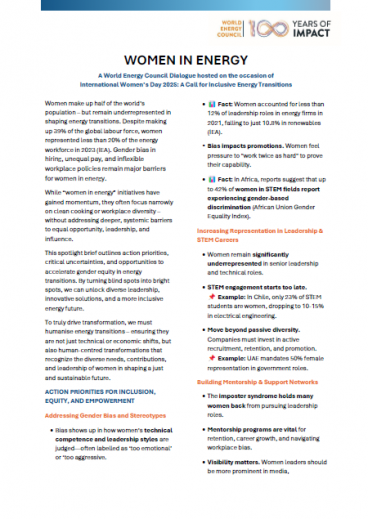Understanding Signals of Recovery
Editor’s note: The World Energy Council is scanning signals of recovery from around the world to see through the current fog of uncertainty, enhance a strategic conversation on different energy futures and enable orderly global energy transition as the world emerges from crisis. We enlisted members of our Future Energy Leaders community to detect and share signals to aid in the development of our World Energy Transition Radar. These are their stories.
Written by: Christian Diendorfer, Future Energy Leader (FEL-100) and Research Engineer at the Austrian Institute of Technology (AIT)
Social media is a vast accumulation of information and opinions that cannot be understood or even screened by a single person, which usually makes artificial intelligence and algorithms necessary to derive and understand trends. But due to Covid-19, we live in unprecedented times and algorithms that were trained on the past are not an option anymore.
The World Energy Council’s World Energy Transition Radar is aggregating the knowledge of its large and diverse world energy community and using its swarm intelligence to provide an unbiased view on global trends from a variety of different perspectives. We’re able to view current events from the vantage point of individuals around the world and see where we may be heading - not just at the global level the different and varied futures of regions around the world. Only if we are aware of and understand what is currently happening are we able to work toward an orderly global energy transition as the world emerges from this crisis.
My key motivation to support the World Energy Council’s World Energy Transition Radar was on the one hand my desire to contribute to this innovative approach but also to gain more clarity for myself in these uncertain times. Participating in the test phase of the signal scanner helped me to develop a more structured and holistic view on the trends emerging from this crisis. It has drastically increased my understanding of the World Energy Council’s COVID-19 Crisis Scenarios which have sharpened my ability to understand the impact of current events on our energy future. This initiative continues to provide valuable insight for the near-term and into the future that will enable our world energy community to act and develop policy paths that ensure a human-centered energy transition.
Throughout my involvement with this initiative, I have noticed that trends changed over time both at the global level and for industry segments. One interesting example I’ve noted has been the airline industry. When the crisis first began, governmental support and cost saving measures were implemented in attempt to manage the effects of the downturn, which was an indication for the Pause scenario. But as airlines started to retire their inefficient aircrafts for good, this indicated a change in their mindset and a preparation for a new normal, signals of either a Re-record or Fast-forward scenario. I have also noticed a very positive and optimistic sentiment for renewables. It seems that there is a huge drive out there to use this opportunity to build a more sustainable energy future. However, in some regions I have also noticed signals of increasing tension on a geopolitical level, potentially jeopardizing the global collaboration that has built in the past decades. Some governments have been focusing mainly on their own challenges rather than finding ways for efficient cooperation. On a national and local level, the responses to the crisis were more diverse. While it seemed that in some countries people moved closer together, despite social distancing, social unrest has sprouted in other countries.
Receiving input from across the global energy community is critical to our ability to see through the current fog of uncertainty and enhance a strategic conversation on different energy futures. If we work together, we can help to shape the post-pandemic agenda and enable orderly global energy transition as the world emerges from crisis. I encourage you all to detect and share signals of change and help to create a better energy future for all.






_-80_result_688_387_s_c1_c_c.jpg)

